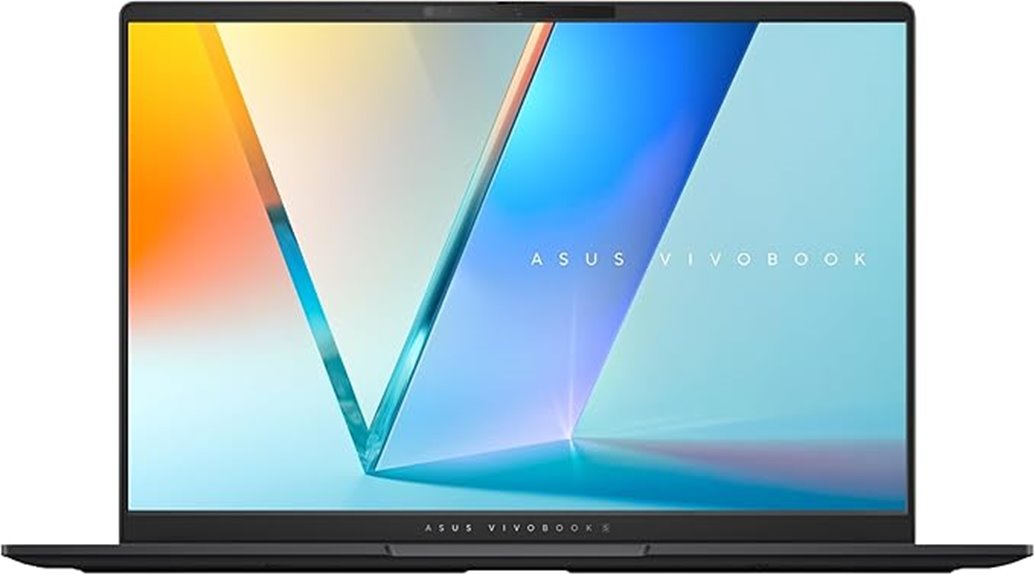Best Laptops for Teletherapy (Top 5 Picks for 2025)
If you’re looking for the best laptops for teletherapy, consider the Apple 2024 MacBook Pro with M4 chip, Acer Swift X 14, and Apple 2025 MacBook Air 15-inch. The ASUS Vivobook S 14 OLED and Samsung Galaxy Book4 Pro also offer great performance. Focus on factors like display quality, battery life, and webcam features to ensure seamless sessions. Stick around to discover more about these top picks and what makes them ideal for your needs.
In the interest of full disclosure, we would like to inform you that some links on our website are affiliate links. By clicking on these links and completing a purchase from our partners, we may receive a nominal commission at no extra cost to you. Rest assured, our affiliate partnerships do not compromise the integrity of our editorial content or product evaluations. For further clarification, kindly refer to our comprehensive affiliate disclosure.
Table of Contents
What Are the Best Laptops for Teletherapy to Buy This Year?
Here are my top picks for the best laptops for teletherapy, you can consider this year.
Apple MacBook Pro Laptop with M4 chip
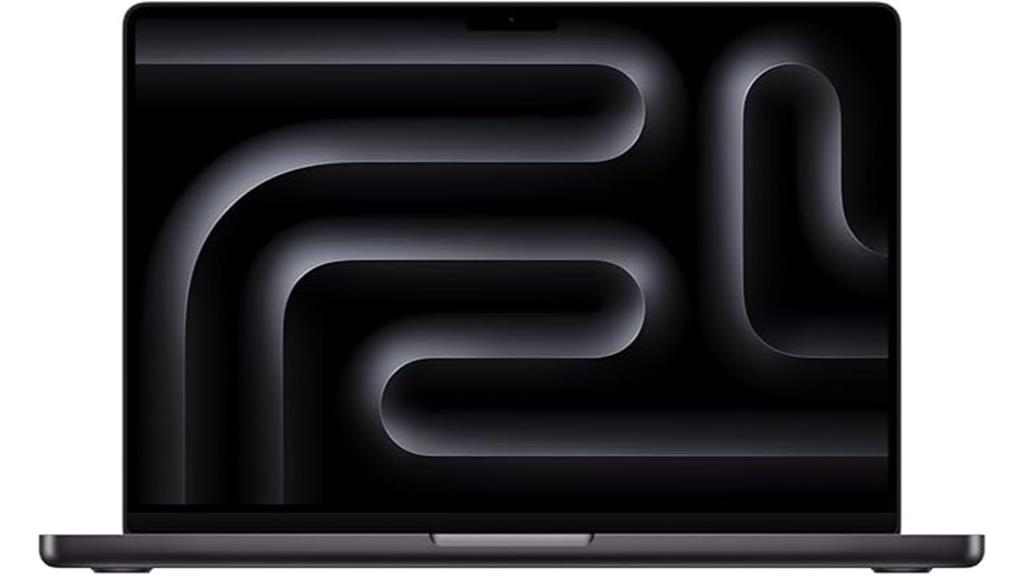
If you’re a mental health professional looking for a reliable device for teletherapy, the Apple 2024 MacBook Pro with the M4 chip is an excellent choice. With its powerful 10-core CPU and GPU, multitasking becomes seamless, allowing you to run productivity apps without a hitch. The stunning 14.2-inch Liquid Retina XDR display ensures your video sessions are clear and engaging, featuring up to 1600 nits of peak brightness. Plus, the all-day battery life means you won’t have to worry about interruptions. Integrated with Apple Intelligence, it enhances your experience while ensuring privacy and compatibility with essential apps like Microsoft 365 and Adobe Creative Cloud.
Best For: Mental health professionals seeking a reliable and high-performance device for teletherapy and productivity tasks.
Pros:
- Exceptional performance with a 10-core CPU and GPU, allowing seamless multitasking.
- Stunning display with 14.2-inch Liquid Retina XDR offering high brightness and contrast for clear video sessions.
- All-day battery life ensures uninterrupted usage during therapy sessions.
Cons:
- Higher price point compared to other laptops in the market.
- Limited upgrade options for storage and memory post-purchase.
- Compatibility issues may arise with some non-Apple applications outside of the popular software suite.
Acer Swift X 14 Laptop (SFX14-72G-77NJ)
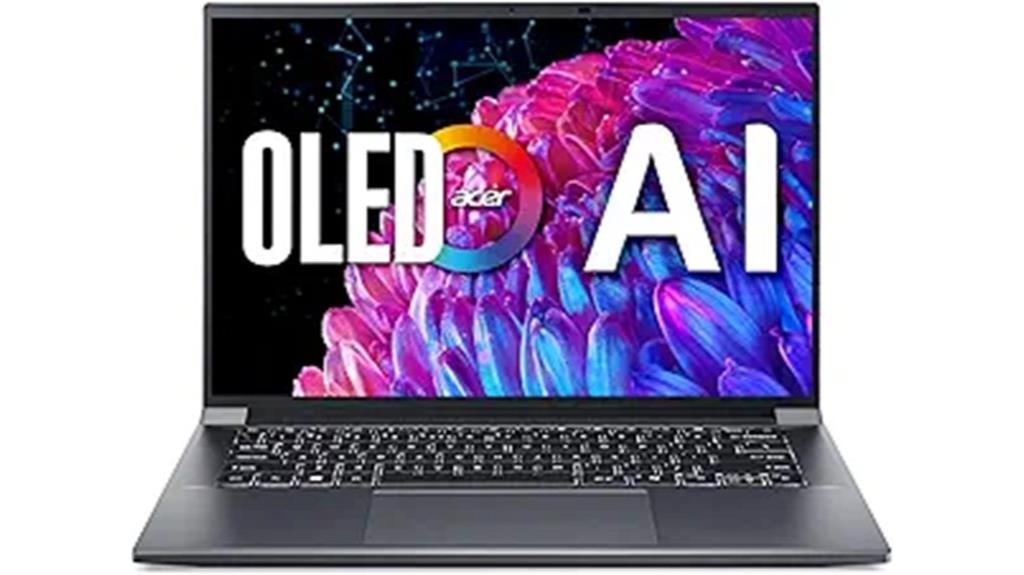
The Acer Swift X 14 Laptop (SFX14-72G-77NJ) stands out as an ideal choice for teletherapy professionals, thanks to its powerful Intel Core Ultra 7 processor and NVIDIA GeForce RTX 4060 GPU. You’ll appreciate the stunning 14.5-inch OLED display, offering vibrant visuals with a 2880 x 1800 resolution and TÜV Rheinland certification to minimize eye strain. Its impressive 16GB memory and 1TB SSD ensure seamless multitasking and quick access to your files. With a 1080p webcam and AI-enhanced features like noise reduction, your virtual sessions will be clear and focused, making it a top pick for your teletherapy needs.
Best For: Teletherapy professionals seeking a powerful laptop for seamless virtual sessions and enhanced collaboration.
Pros:
- Powerful performance: Equipped with an Intel Core Ultra 7 processor and NVIDIA GeForce RTX 4060 GPU for demanding tasks.
- Stunning display: 14.5-inch OLED screen with high resolution and TÜV Rheinland certification for reduced eye strain.
- Enhanced collaboration: Features like a 1080p webcam and AI noise reduction ensure clear communication during sessions.
Cons:
- Price point: May be considered expensive for casual users or those with basic computing needs.
- Portability: While lightweight, the 14.5-inch size may not suit everyone’s preference for ultra-portable devices.
- Battery life: High-performance components may lead to reduced battery longevity under heavy use.
Apple 2025 MacBook Air 15-inch Laptop with M4 Chip
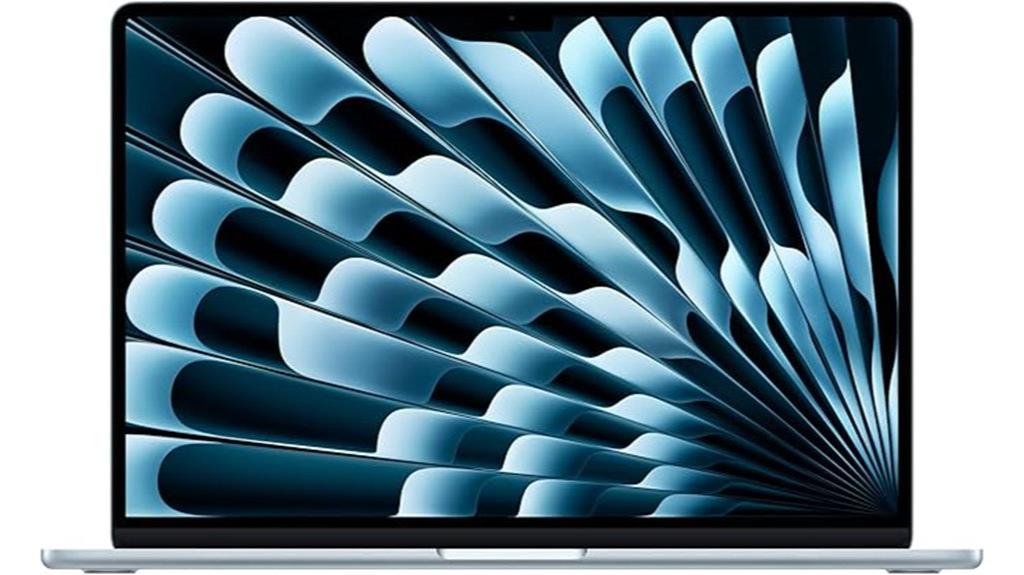
For teletherapists seeking a reliable and powerful laptop, the Apple 2025 MacBook Air 15-inch with the M4 chip stands out with its exceptional performance and impressive battery life. You’ll enjoy seamless multitasking and video editing, thanks to the M4 chip’s speed. The stunning 15.3-inch Liquid Retina display showcases rich colors and sharp details, enhancing your virtual sessions. With a 12MP Center Stage camera and spatial audio from six speakers, your clients will experience clear visuals and sound. Plus, connectivity options like Thunderbolt 4 ports and Wi-Fi 6E ensure you stay connected effortlessly while keeping your data secure.
Best For: Teletherapists seeking a reliable and powerful laptop for seamless virtual sessions and multitasking.
Pros:
- Exceptional performance with the M4 chip, enhancing speed for multitasking and video editing.
- Stunning display quality with a 15.3-inch Liquid Retina that supports 1 billion colors, providing rich visuals.
- High-quality audio and video capabilities with a 12MP camera and spatial audio from six speakers.
Cons:
- Limited ports with only two Thunderbolt 4 ports and one headphone jack, which may not suffice for all users.
- Price point may be higher compared to other laptops in the same category, making it less accessible for some.
- Lack of upgradability, as the components are typically soldered and cannot be changed post-purchase.
ASUS Vivobook S 14 OLED Slim Laptop (M5406WA-DS76)
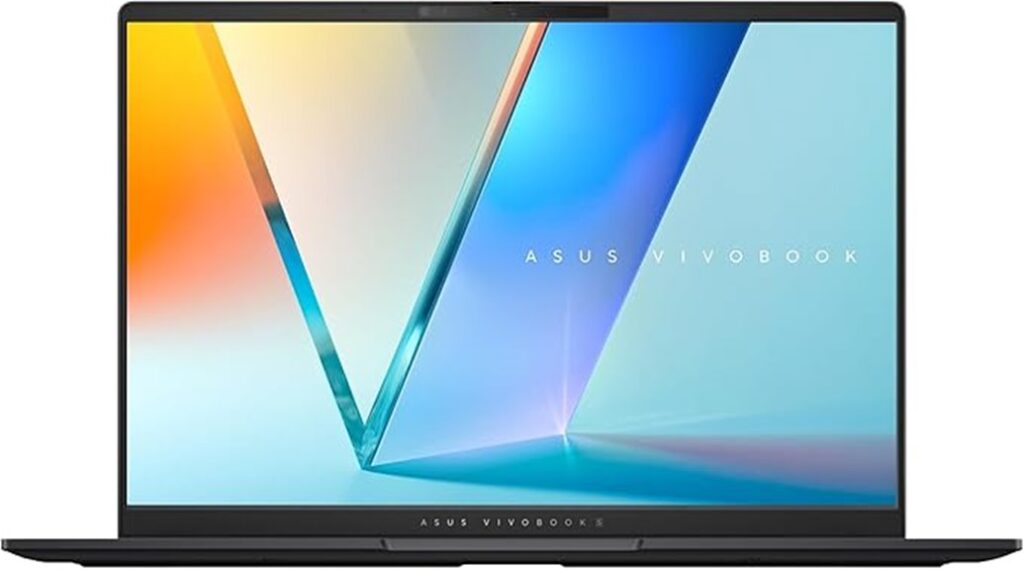
Designed with teletherapy in mind, the ASUS Vivobook S 14 OLED Slim Laptop (M5406WA-DS76) boasts a stunning 14” 3K OLED display that ensures every detail is crystal clear during virtual sessions. With its powerful AMD Ryzen 9 processor and 24GB of RAM, multitasking is a breeze. The laptop’s lightweight design, at just 2.87 lbs, makes it perfect for on-the-go professionals. You’ll appreciate the customizable RGB backlit keyboard for an ergonomic typing experience, while multiple connectivity options keep you connected. Plus, the impressive 600nits peak brightness and 120Hz refresh rate elevate your video calls to a whole new level.
Best For: The ASUS Vivobook S 14 OLED Slim Laptop is best for on-the-go professionals seeking high-performance multitasking capabilities for teletherapy and virtual meetings.
Pros:
- Powerful AMD Ryzen 9 processor and 24GB RAM enable seamless multitasking.
- Stunning 14” 3K OLED display with 600nits brightness enhances video quality.
- Lightweight design at 2.87 lbs makes it highly portable for professionals.
Cons:
- Limited internal storage with only 512GB SSD may require external storage solutions.
- The price point may be higher compared to other laptops with similar features.
- RGB backlit keyboard customization may not appeal to all users.
Samsung Galaxy Book4 Pro Business Laptop (NP944XGK-KG4US)
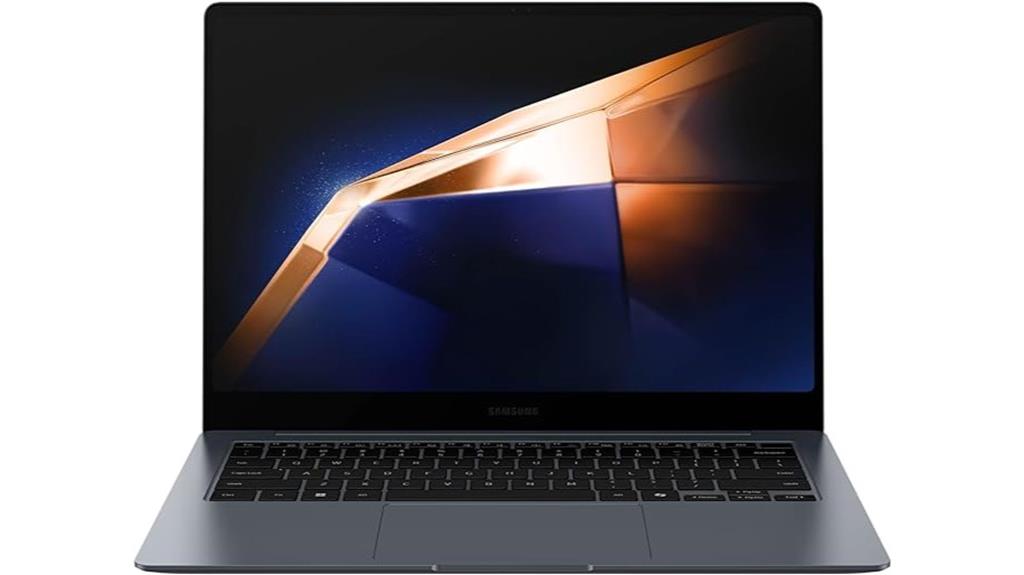
Offering exceptional performance for teletherapy, the Samsung Galaxy Book4 Pro Business Laptop (NP944XGK-KG4US) stands out with its powerful Intel Core Ultra 7 processor and 32GB of RAM. You’ll appreciate the stunning 14-inch 3K AMOLED touchscreen that ensures crystal-clear visuals during your sessions. Weighing just 2.71 lbs, it’s portable enough for on-the-go professionals. With a robust 1TB SSD, multitasking and video conferencing are seamless. Plus, its impressive battery life and fast charging keep you connected when it matters most. Enjoy enhanced security with Samsung Knox, making it a reliable choice for your teletherapy needs.
Best For: Professionals seeking a lightweight and powerful laptop for teletherapy and multitasking.
Pros:
- Exceptional performance with Intel Core Ultra 7 processor and 32GB of RAM for smooth multitasking.
- Stunning 3K AMOLED touchscreen display for crystal-clear visuals.
- Lightweight and portable design, perfect for on-the-go usage.
Cons:
- Higher retail price compared to competitors with similar specifications.
- Limited RAM upgrade options in certain regions (max 16GB).
- Perceived low quality of the OEM SSD from Western Digital for the price point.
Factors to Consider When Choosing the Best Laptops for Teletherapy
When choosing a laptop for teletherapy, you need to focus on several key factors. Performance and speed are crucial for smooth interactions, while display quality enhances your visual experience. Don’t forget to consider audio, webcam capabilities, connectivity options, and battery life to ensure effective sessions.
Performance and Speed
To ensure your teletherapy sessions run smoothly, it’s essential to consider the performance and speed of your laptop. A powerful processor, like a multi-core CPU, can significantly enhance your experience, making video calls seamless and multitasking more efficient. Aim for at least 16GB of RAM; this capacity allows you to switch between applications effortlessly, which is crucial for using different tools during sessions. Fast SSD storage of 512GB or more will help with quicker boot times and loading speeds. Don’t overlook battery life—opt for a laptop that lasts at least 8 hours to avoid interruptions. By prioritizing these performance factors, you’ll create a more effective teletherapy environment for both you and your clients.
Display Quality
Display quality plays a crucial role in the effectiveness of teletherapy sessions. A high-resolution display, such as 2880 x 1800, enhances clarity, making it easier for you and your clients to engage. Look for a peak brightness of at least 600 nits to ensure visibility in various lighting conditions, allowing both of you to see each other clearly. An OLED display can provide richer contrast and color accuracy, which is vital for conveying emotions effectively. Additionally, features like TÜV Rheinland certification can reduce eye strain during long sessions, promoting comfort for everyone involved. Finally, a laptop with a 16:10 aspect ratio offers more vertical screen space, improving visibility of shared documents and presentations during your teletherapy sessions.
Audio and Webcam
While you might focus on display quality for teletherapy, don’t overlook the importance of audio and webcam capabilities. A high-quality webcam with at least 1080p resolution is essential for clear visuals, enabling you and your client to maintain eye contact and read non-verbal cues effectively. Built-in microphones featuring noise reduction technology can significantly enhance audio clarity, minimizing distractions and improving communication. Look for laptops with multiple microphones arranged in an array for better sound pickup and voice isolation. Features like AI noise reduction can further filter out unwanted background sounds, creating a more professional environment. Additionally, a good speaker system ensures both parties can hear each other and any shared media clearly, supporting effective communication throughout your sessions.
Connectivity Options
Connectivity is crucial when choosing a laptop for teletherapy, as it directly impacts how seamlessly you can interact with your clients. Look for laptops with multiple connectivity options like Thunderbolt 4, USB-C, and HDMI. These features facilitate integration with various peripherals and video conferencing tools. Ensure your laptop supports Wi-Fi 6E for faster, more stable internet connections, which is essential for high-quality audio and video during sessions. A laptop with Bluetooth 5.3 or higher enhances connectivity with wireless devices, ensuring clearer communication. Additionally, consider models with a microSD card reader to easily access and share documents. Lastly, evaluate laptops with built-in webcams and advanced audio features to guarantee effective communication in therapy sessions.
Battery Life
When choosing a laptop for teletherapy, battery life plays a crucial role, especially since sessions can last for hours without access to a power outlet. Look for laptops that offer at least 8 hours of battery life for reliable performance, allowing flexibility in your scheduling. Some models even provide up to 18 hours, which can be a game-changer for back-to-back sessions. It’s important to ensure the laptop maintains consistent performance on battery power, particularly when using video conferencing software. Fast charging capabilities can also be beneficial, letting you quickly recharge between sessions. Additionally, consider laptops with energy-efficient processors designed to optimize performance while consuming less power, enhancing overall battery longevity.
Portability and Design
Portability and design are essential factors to consider for teletherapy laptops, as you’ll want a device that’s easy to transport without sacrificing functionality. Aim for a laptop weighing between 2.5 to 3.5 lbs, making it simple to carry between locations. A slim profile, ideally under 0.7 inches thick, helps fit your laptop into bags without bulk. Battery life is crucial, so look for at least 8 hours to ensure uninterrupted sessions, especially when working in varied settings. Additionally, a lightweight yet durable design can withstand frequent travel while maintaining a professional appearance. Don’t forget an ergonomic keyboard and touchpad, as they enhance comfort during long typing sessions, making your teletherapy experience more effective.
Frequently Asked Questions
What Is the Ideal Screen Size for Teletherapy Laptops?
For teletherapy, a screen size between 13 to 15 inches is ideal. It strikes a balance between portability and visibility, ensuring you can see your clients clearly while easily moving around your space.
How Much RAM Is Sufficient for Teletherapy Sessions?
For teletherapy sessions, you’ll want at least 8GB of RAM. It ensures smooth performance during video calls and multitasking. If you often run multiple apps simultaneously, consider upgrading to 16GB for optimal efficiency.
Do I Need a Webcam for Teletherapy?
Yes, you’ll need a webcam for teletherapy. It enhances communication, allowing you to see facial expressions and body language, which are crucial for effective interactions. Most laptops come with built-in webcams, making it convenient.
Is Battery Life Important for Teletherapy Laptops?
Yes, battery life’s crucial for teletherapy laptops. You don’t want your device dying mid-session. A reliable battery ensures you can focus on your clients without worrying about finding an outlet during important conversations.
Can I Use a Tablet Instead of a Laptop for Teletherapy?
You can use a tablet for teletherapy, but ensure it has a strong internet connection and a good front camera. Some features might be limited compared to laptops, but tablets can still work effectively.
My Final Opinion
In conclusion, choosing the right laptop for teletherapy can make a significant difference in your virtual sessions. With options like the Apple MacBook Pro and Acer Swift X, you’re bound to find a device that suits your needs. Consider factors like performance, battery life, and display quality to ensure seamless interactions with your clients. Investing in a reliable laptop means you can focus on what matters most—providing excellent care and support during your sessions.
